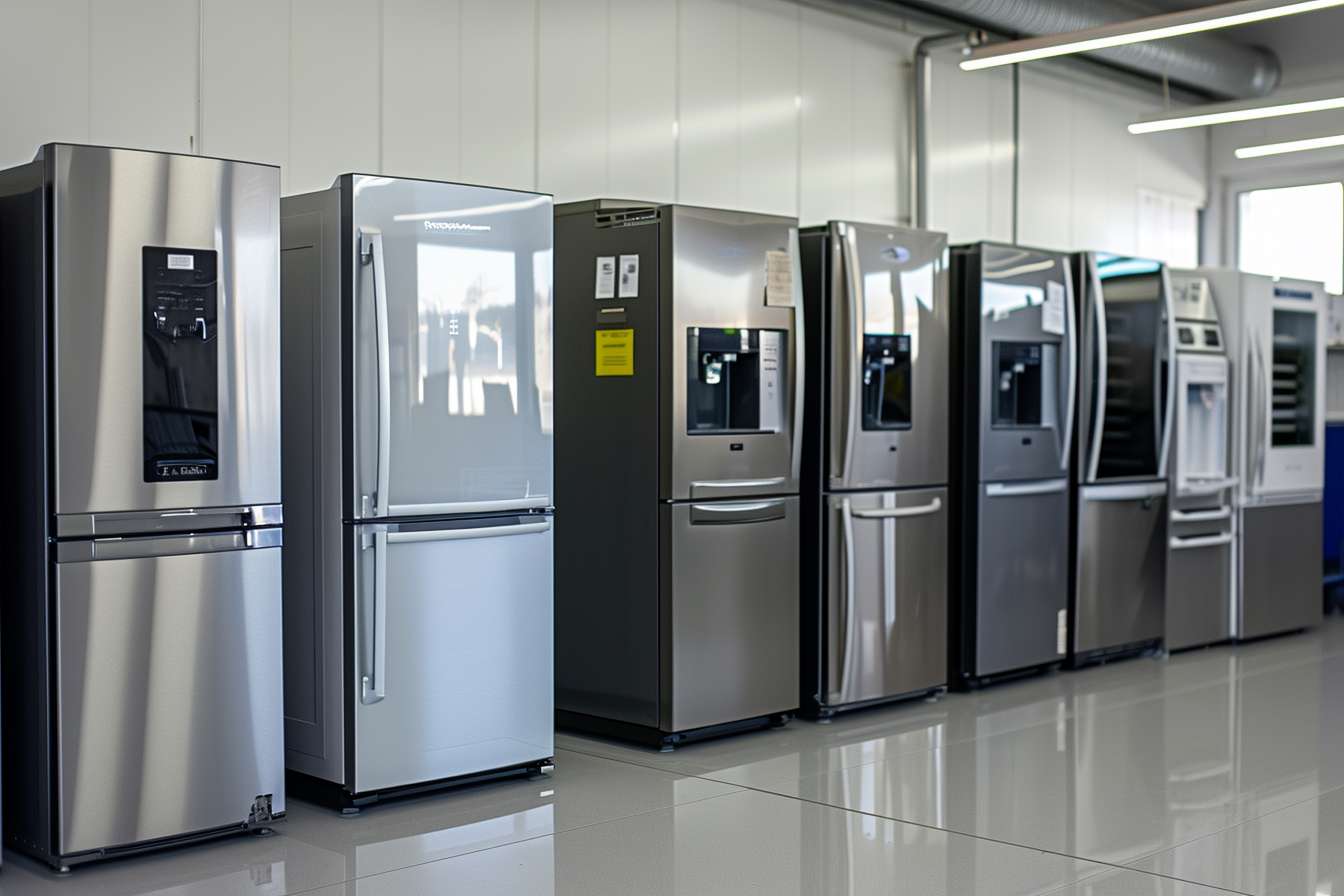Energy-Efficient Refrigerators: A Comprehensive Guide to Greener Cooling
Energy-efficient refrigerators use advanced insulation, compressors, and temperature control to reduce power consumption. They help households lower energy bills while minimizing environmental impact. Features may include smart sensors and optimized cooling zones.

What Makes a Refrigerator Energy-Efficient?
Energy-efficient refrigerators incorporate several key technologies and design features that reduce electricity consumption without compromising performance. Modern energy-efficient models use improved compressor technology, better insulation materials, and more precise temperature control systems. These refrigerators often feature variable speed compressors that adjust cooling power based on need rather than cycling on and off at full power. Additionally, high-efficiency models use environmentally friendly refrigerants with lower global warming potential. LED lighting, which consumes significantly less energy than traditional incandescent bulbs, has become standard in energy-efficient models, further reducing power consumption while providing excellent illumination inside the refrigerator.
Understanding Energy Star Ratings and Efficiency Labels
When shopping for energy-efficient refrigerators, the Energy Star label serves as a reliable guide for consumers. This certification, managed by the U.S. Environmental Protection Agency, indicates that a refrigerator meets strict energy efficiency guidelines, typically consuming at least 20% less energy than the minimum federal standard. In Australia, the Energy Rating Label system uses a star rating (from 1 to 10) to indicate efficiency, with more stars representing better performance. These labels also display the estimated annual energy consumption in kilowatt-hours (kWh), allowing consumers to calculate potential running costs. Understanding these rating systems helps shoppers compare different models objectively and select the most efficient option that meets their needs and budget.
Key Features to Look for in Energy-Efficient Refrigerators
Several specific features contribute significantly to a refrigerator’s energy efficiency. Look for models with door alarms that alert you when the door has been left open, preventing unnecessary cold air loss. Multi-zone cooling systems that maintain different humidity and temperature levels in various compartments not only preserve food better but also optimize energy use. Vacation or eco modes allow the refrigerator to run on minimal power during extended periods of non-use. Smart refrigerators with Wi-Fi connectivity enable remote temperature adjustments and provide energy usage data to help optimize settings. Additionally, consider the configuration—generally, top-freezer models tend to be more energy-efficient than side-by-side designs, while French door models offer good efficiency combined with convenient access to fresh food sections.
Cost Considerations and Long-Term Savings
While energy-efficient refrigerators typically have higher upfront costs than standard models, they generate significant savings over their lifespan. A high-efficiency refrigerator can save 30-50% on operational costs compared to a model from 15 years ago. For a typical household, this can translate to savings of $50-$150 annually on electricity bills, allowing the higher initial investment to be recouped over time. Additionally, many utility companies offer rebates for Energy Star-certified appliances, further offsetting the purchase price. When calculating the true cost of a refrigerator, it’s important to consider both the purchase price and the lifetime operational costs to understand the overall value.
| Refrigerator Model | Energy Star Rating | Annual Energy Use (kWh) | Estimated Annual Running Cost |
|---|---|---|---|
| LG LRFVC2406S | Energy Star Certified | 608 kWh | $73 |
| Samsung RF23A9771SR | Energy Star Certified | 624 kWh | $75 |
| Whirlpool WRF555SDFZ | Energy Star Certified | 598 kWh | $72 |
| GE Profile PVD28BYNFS | Energy Star Certified | 728 kWh | $87 |
| Bosch B36CD50SNS | Energy Star Certified | 624 kWh | $75 |
Prices, rates, or cost estimates mentioned in this article are based on the latest available information but may change over time. Independent research is advised before making financial decisions.
Proper Maintenance to Maximize Energy Efficiency
Even the most efficient refrigerator requires proper maintenance to maintain optimal performance. Regular cleaning of the condenser coils (typically located on the back or bottom of the unit) prevents dust buildup that forces the compressor to work harder. Checking and replacing door seals when they become worn ensures cold air remains inside where it belongs. Setting the refrigerator to the manufacturer’s recommended temperature (typically 3-4°C for the fresh food compartment and -18°C for the freezer) prevents unnecessary energy consumption from overcooling. Allowing hot foods to cool before refrigeration and keeping the refrigerator reasonably full (but not overcrowded) helps maintain stable temperatures with less energy. These simple maintenance practices can extend the life of the appliance while preserving its energy-saving capabilities.
Environmental Impact of Energy-Efficient Refrigerators
Choosing an energy-efficient refrigerator contributes significantly to reducing your environmental footprint. Lower electricity consumption directly translates to reduced greenhouse gas emissions associated with power generation. Modern efficient refrigerators also use refrigerants with lower global warming potential compared to older models that might contain hydrofluorocarbons (HFCs) with high environmental impact. Additionally, many manufacturers of energy-efficient models are incorporating sustainable materials and manufacturing processes, such as recycled content and reduced water usage during production. When replacing an old refrigerator, proper recycling ensures that potentially harmful components are safely disposed of while recoverable materials are reclaimed, further reducing environmental impact throughout the appliance’s lifecycle.
Energy-efficient refrigerators represent a significant advancement in household appliance technology, offering substantial benefits for consumers and the environment alike. By understanding what makes these appliances efficient, how to interpret energy ratings, which features to prioritize, and how to maintain them properly, consumers can make informed choices that reduce both energy bills and environmental impact. Though they may require a higher initial investment, the long-term savings and reduced carbon footprint make energy-efficient refrigerators a wise choice for environmentally conscious and budget-minded households.




